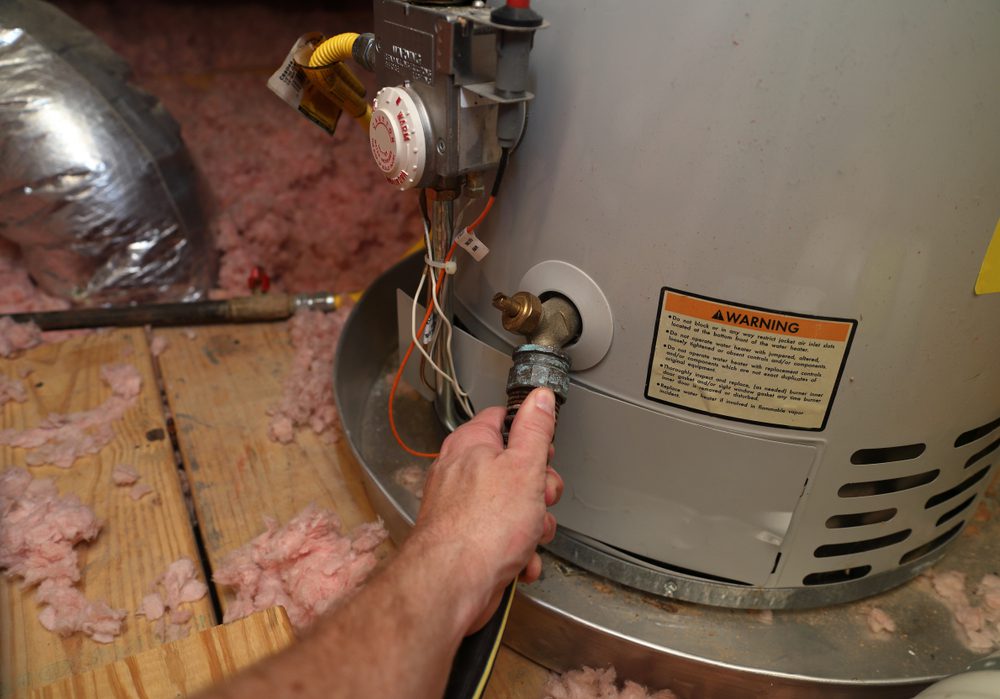We have unearthed the article involving Is Your Water Heater Leaking? down the page on the net and concluded it made sense to talk about it with you here.

A water heater is one of one of the most crucial basic home appliances that can be discovered in a house. With water heaters, you don't need to experience the tension of heating water by hand every single time there is a demand to take a bath, wash, or the meals. There is constantly a possibility that your water heater would act up as with a lot of mechanical gadgets.
It is important to note any little malfunction as well as tackle it rapidly before things get out of hand. Most times, your water heater starts to malfunction when there is an accumulation of debris as a result of continuous usage. As a precaution, routine flushing of your hot water heater is suggested to stop debris accumulation and also protect against useful failing.
Usual water heater emergency situations and exactly how to take care of them
Dripping water heater tank.
In this circumstance, you need to turn off your water heating unit, enable it to cool down, and thoroughly look for the resource of the problem. At times, all you need to do is to tighten a few screws or pipeline connections in cases of minor leakages. If this doesn't function and the leak continues, you could need to utilize the solutions of a professional for an appropriate substitute.
Changing water temperature level.
Your hot water heater could begin producing water of various temperatures generally ice hot or cool hot. In this situation, the first thing you do is to ensure that the temperature is readied to the desired degree. If after doing this, the water temperature keeps altering throughout showers or various other tasks, you could have a defective thermostat. There may be a requirement to replace either the thermostat or the heating unit of your water heater.
Insufficient warm water
Handling an inadequate supply of hot water can be irritating. It may be that the water heater can't sustain the hot water need for your home. To manage this trouble, you might attempt to readjust your heating system's temperature level dial and await a couple of mins. If the issue lingers, you can request for the help of an expert plumber. Alternatively, you could update your hot water heater to one with a bigger ability.
Tarnished or stinky water
When this occurs, you require to know if the problem is from the tank or the water source. If there is no amusing scent when you run chilly water, after that you are certain that it is your water heater that is malfunctioning. The stinky water can be created by corrosion or the buildup of germs or debris in the water heating unit tank.
Conclusion
Some property owners ignore little caution and also minor faults in their water heater unit. This just results in further damage and a feasible complete breakdown of your appliance. You should deal with your hot water heater faults as soon as they come up to stay clear of more costs and unnecessary emergency troubles.
With water heaters, you do not require to go through the stress of heating water manually every time there is a requirement to take a bathroom, do the laundry, or the recipes. Your water heating unit might start generating water of different temperatures usually ice cool or hot warm. It may be that the water heating unit can not support the warm water need for your apartment or condo. If there is no funny odor when you run cold water, after that you are specific that it is your water heater that is malfunctioning. The stinky water can be triggered by corrosion or the build-up of microorganisms or sediments in the water heating unit storage tank.
Common Water Heater Issues and What You Should Do
What Type of Water Heater Do You Have?
Before we begin it’s first important that you identify the type of water heater you have on your property. There are two main types of water heaters out there: conventional and high efficiency.
Both of these types of products typically use either gas or electricity to heat power. There are also solar water heaters that use a thermal collector on the roof or yard to heat the water.
While these models are not as common, they can cut heating costs in half. In this article, we will focus on conventional and high efficiency.
How Do My Electric and Gas Water Heater Work?
Though they look similar, electric and gas water heaters work very differently. It’s important to know their basic function because often problems can be specific to the heating source.
In the electric model, a thermostat on the side of the machine detects the temperature of the water in the tank. When the temperature needs to rise electricity flows to a heating element suspended in the water.
Gas models also use a thermostat device — typically with a mercury sensor at the tip and an additional sensor called a thermocouple. The thermocouple detects whether the pilot light is on and controls the flow of gas.
When the thermostat drops below the appropriate level gas is released which becomes ignited by the pilot light. The flame heats the bottom of the water tank which causes hot water to rise and cold water to drop.
This natural circulation continues until the water reaches the desired temperature. Then, the thermostat triggers the gas control valve to shut off the flow of gas.
What Are the Most Common Issues and How Do You Fix Them?
https://happyhiller.com/blog/common-water-heater-issues-and-what-you-should-do/

I recently found that blog entry on Common Hot Water Heater Problems while surfing the internet. Enjoyed our posting? Please share it. Help another person discover it. Thank-you for taking the time to read it.
Book Your Installation